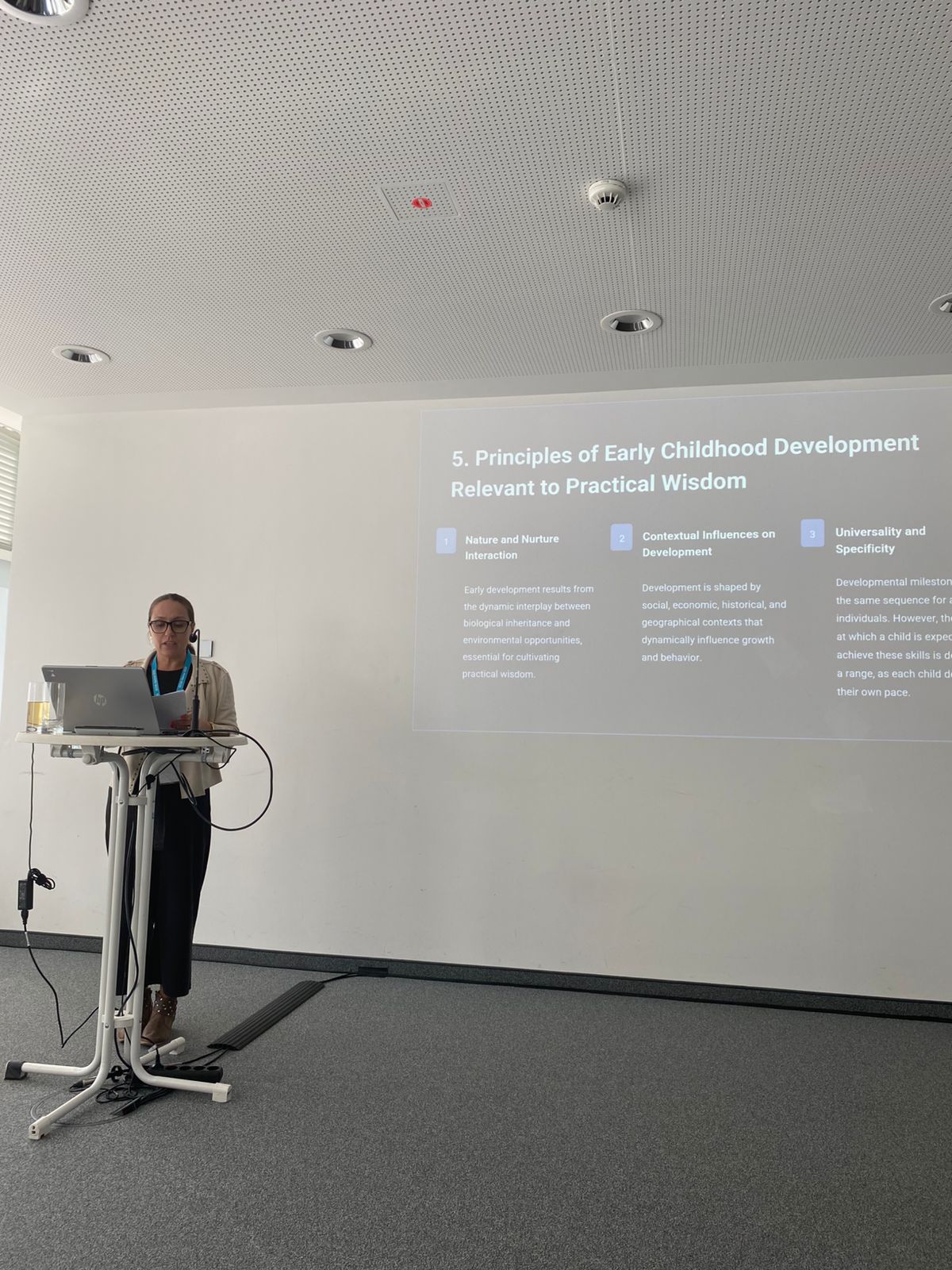
Bernardita Tornero, researcher at the Human Development Lab, took part in the 2025 ECVA Conference held in Vienna from June 24 to 26. Organized by the European Character and Virtue Association, the event brought together over 120 researchers, educators, and policymakers from 23 countries to reflect on the question: “What makes a life of flourishing?”
The conference focused on the intersection of character education, life skills, and key competencies for human development in today’s complex and fast-changing world. “I decided to participate because I believe it is urgent to rethink how education can respond to current challenges like psychological wellbeing, resilience, and ethical formation,” said Tornero. “These are key issues in an increasingly uncertain and automated society.”
Tornero presented the paper “Is it possible to teach practical wisdom from early childhood?”, co-authored with Maria Silvia Vaccarezza from the Aretai (Center on Virtues at the University of Genoa). “The conference structure, featuring workshops, roundtables, and parallel sessions, encouraged rich academic exchange,” she noted. “It was a great opportunity to receive feedback before submitting the paper for potential publication.”
Her participation also enabled her to establish connections with researchers from institutions such as the Jubilee Centre in the UK, various universities across Latin America and Europe, and international organizations like the OECD. “The diversity of disciplines and backgrounds created a very collaborative and stimulating environment,” she added.
During the event, Tornero received valuable feedback on the applicability of her work, particularly around integrating virtue-based education in vulnerable school contexts. “Several experts emphasized the need to align educational efforts with sustainable public policy, which opens interesting avenues for cross-sector collaboration,” she said.
Reflecting on the experience, Tornero highlighted three distinctive features of the ECVA Conference: its truly interdisciplinary approach, the high quality of academic dialogue, and the diversity of perspectives from across the globe. “The combination of philosophy, psychology, education, and policy created a space where both empirical evidence and ethical reflection were equally valued,” she explained.
The conference’s central theme revolved around how education can foster a flourishing life, combining character development, cognitive skills, and emotional wellbeing. Among the most relevant contributions was the keynote address by Andreas Schleicher (OECD), who emphasized the urgent need to teach creativity, resilience, and ethical judgment in the age of artificial intelligence.
Another particularly thought-provoking presentation came from Liz Gulliford, who invited participants to rethink the notion of resilience—not merely as an individual ability to adapt, but as a collective strength nurtured by supportive environments.
Finally, a panel on the Bounce Back project, implemented in Austria and Hungary, presented an integrated model for strengthening character and mental health among children through school-based programs.
“These discussions provided powerful ideas for addressing today’s educational and social challenges with holistic approaches that balance the emotional, ethical, and cognitive dimensions of learning,” said Tornero.
The Human Development Lab celebrates the international engagement of its researchers and their contributions to shaping educational innovation and public policy.